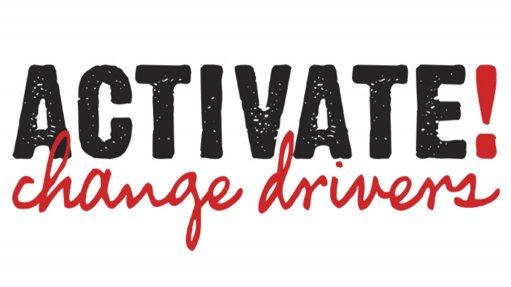
It is critically important that the voices of young people are heard in decision-making and policy structures when it comes to dealing effectively with gender-based violence and femicide (GBVF) in our society, as they are the future leaders of South Africa and can help shape a more inclusive, safer nation.
Young people are a major human resource for development, often acting as key agents for social change, economic expansion and innovation. Their imagination, ideals, energy and vision are essential for the continuous development of society.
In fact, young people are already contributing to the resilience of their communities, proposing innovative solutions, driving social progress and inspiring political change, in urban as well as rural contexts. This potential has been seen through their activism and organising related to gender inequality, GBV and making feminist change possible.
What we have found within our leadership programmes at Activate Change Drivers, which our 4 500-strong youth network (Activators) have all participated in, is that young people have hardly ever had an opportunity to engage at a Government level, or in most decision-making structures and policy decision-making structures, including where legislation or socio-economic policy affects them.
This is unfortunate, given that young people are observing gender-based violence first-hand in their own communities and could give us valuable insights into our response to the rise of GBV in South Africa. Young people feel that the information they are sharing in spaces around the National Youth Policy and many other spaces, are not being included.
Multisectoral approach
Our Activators within our network felt we should rather have a conversation with the people who are sitting in these spaces, saying we need a multisectoral approach to addressing these social ills in our community, because we don't have young people in leadership positions. The outcome was a Youth Leadership and Accountability Imbizo in May of this year, organised by Activate, with stakeholders, as a result of those conversations. Those present included the leadership of youth policy stakeholders, gender equality organisations, and Government. There were representatives from the Department of Women, Youth and Persons with Disabilities; provincial youth advisors; Accountability Lab; and the Commission for Gender Equality.
It is a start to integrating young people’s voices into the national conversation around governance and GBV. As Professor Hlengiwe Mkhize, Deputy Minister of the Department of Women, Youth and Persons with Disabilities said, we need our youth to share their own lived reality of what happens in their own communities; as well as how they can start contributing within their own communities to solving these problems.
We are looking at how to integrate young people into multisectoral polices and strategies to address these critical issues in our society. It is so important that young people’s voices are heard. We want young people to be at the forefront of decision-making structures; as well as coming up with innovative ideas around how we address these issues; whether it be gender-based violence, climate change, or social economic issues that are happening in South Africa. How do we recreate this developed country that is very inclusive, that is youth friendly, and takes on a multisectoral approach to addressing social issues?
Participants in the recent Imbizo also looked at a national youth resilience initiative, where the youth help to create resilient communities through various initiatives. A second challenge is to ensure youth are represented on the various leadership structures; and to ensure collaboration with those structures where youth are already represented, such as the Gender-Based Violence and Femicide Council. More diversity was also called for in these structures to equally represent all young people in their variety and diversity.
Youth champions
I would like to see young people as champions of these issues in all spheres of government – from gender-based violence and femicide, to the promotion of gender justice in South Africa. Because remember, young people have a wealth of knowledge too. They should be afforded the opportunity to engage and to come up with innovative interventions to address these specific issues from grassroot level, which will then at same time, trickle up into government – we need that bottom to top approach too. But that can only happen with inclusive and intersectional policies.
In terms of a way forward, Activate is making key recommendations, to be discussed with all stakeholders, that include: strengthening engagements with boys and young men in their diversity in the prevention of GBVF; strengthening youth representation in different GBVF response structures; implementing early prevention interventions at grassroots levels; strengthen grassroots youth advocacy and resilience in GBVF, as well as school related violence; and the localisation of SDGs (the UN Sustainable Development Goals) through district youth councils.
Written By Nkokheli Mankayi, Project Coordinator: Gender Justice & Equality, ACTIVATE! Change Drivers